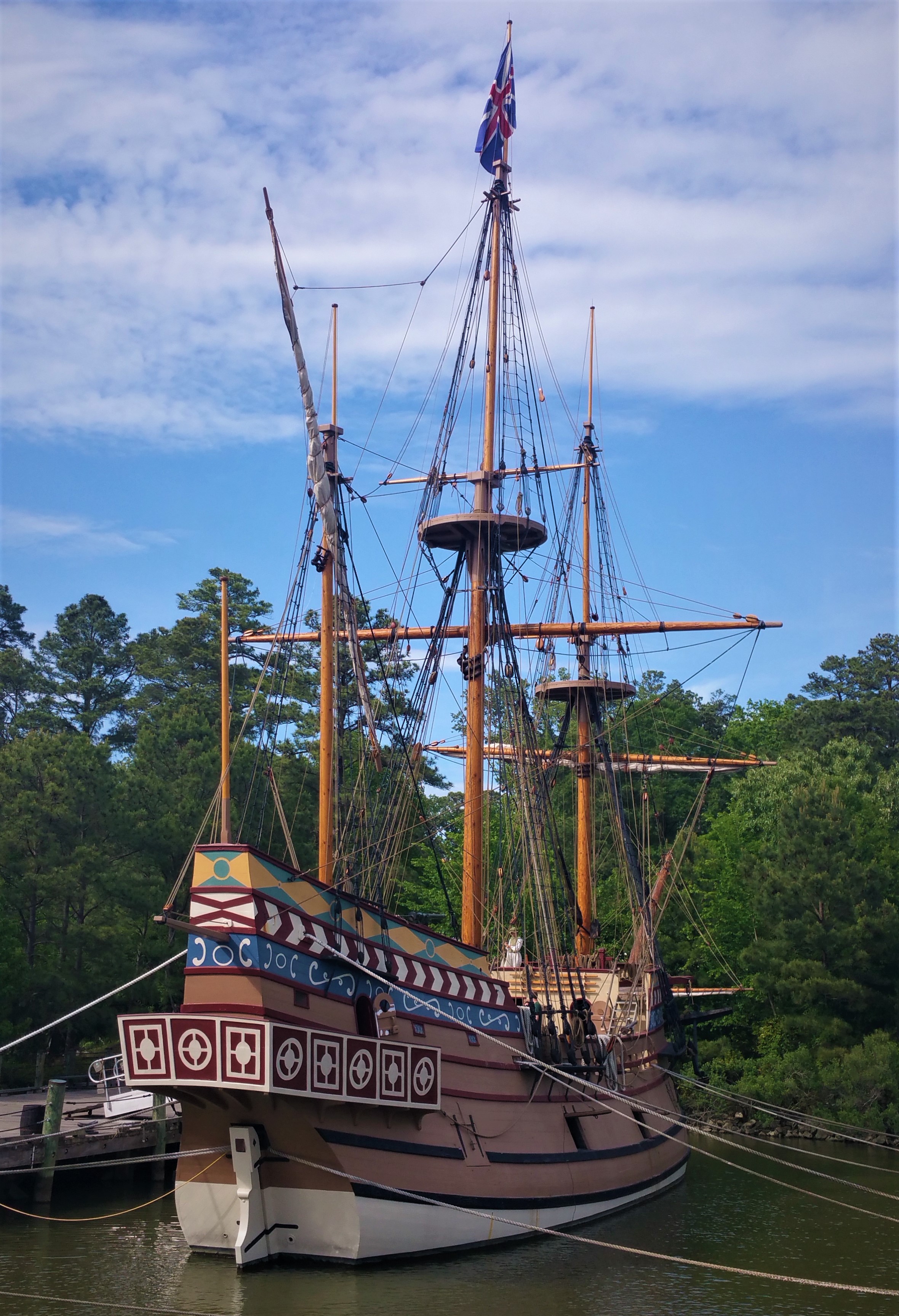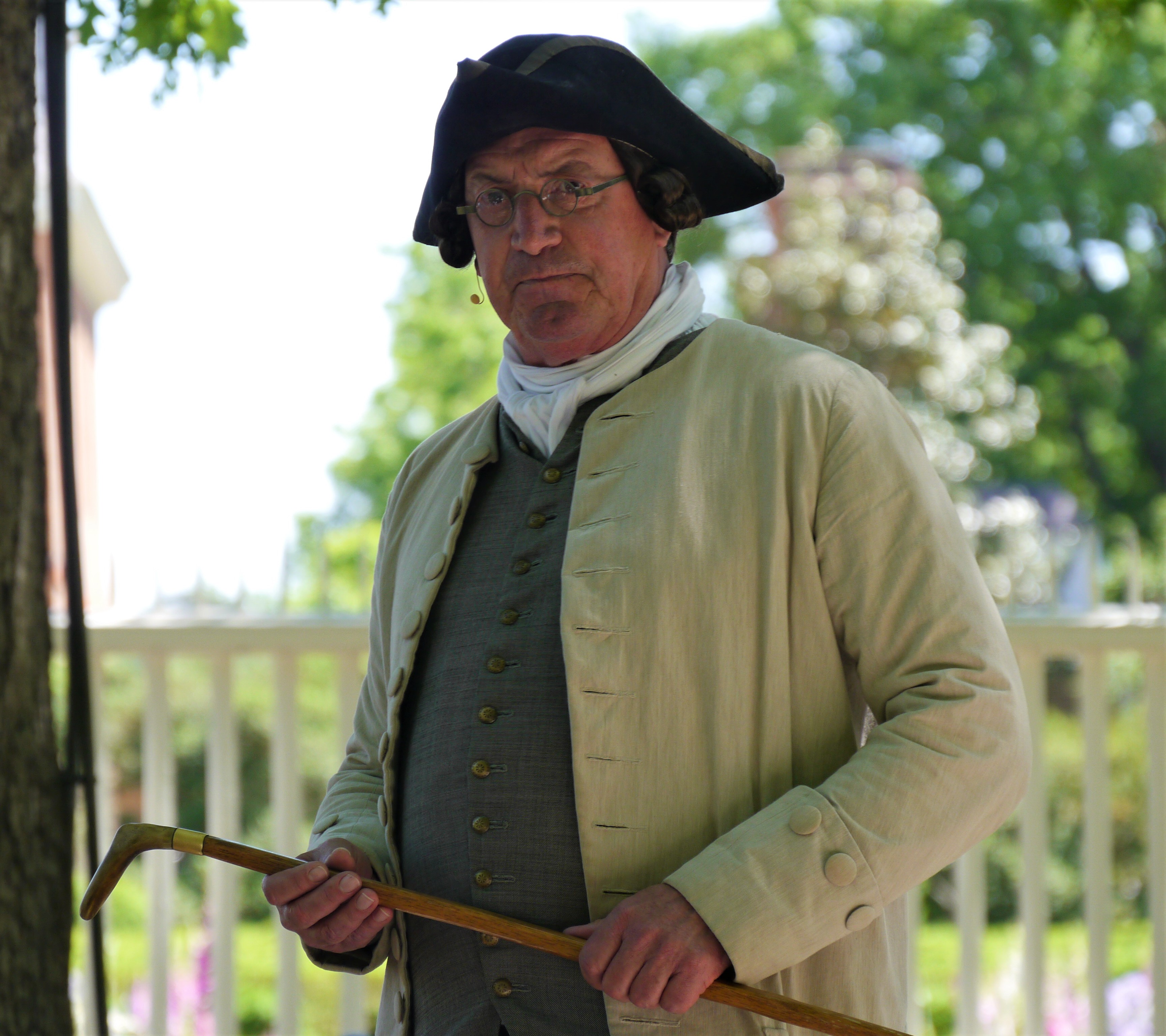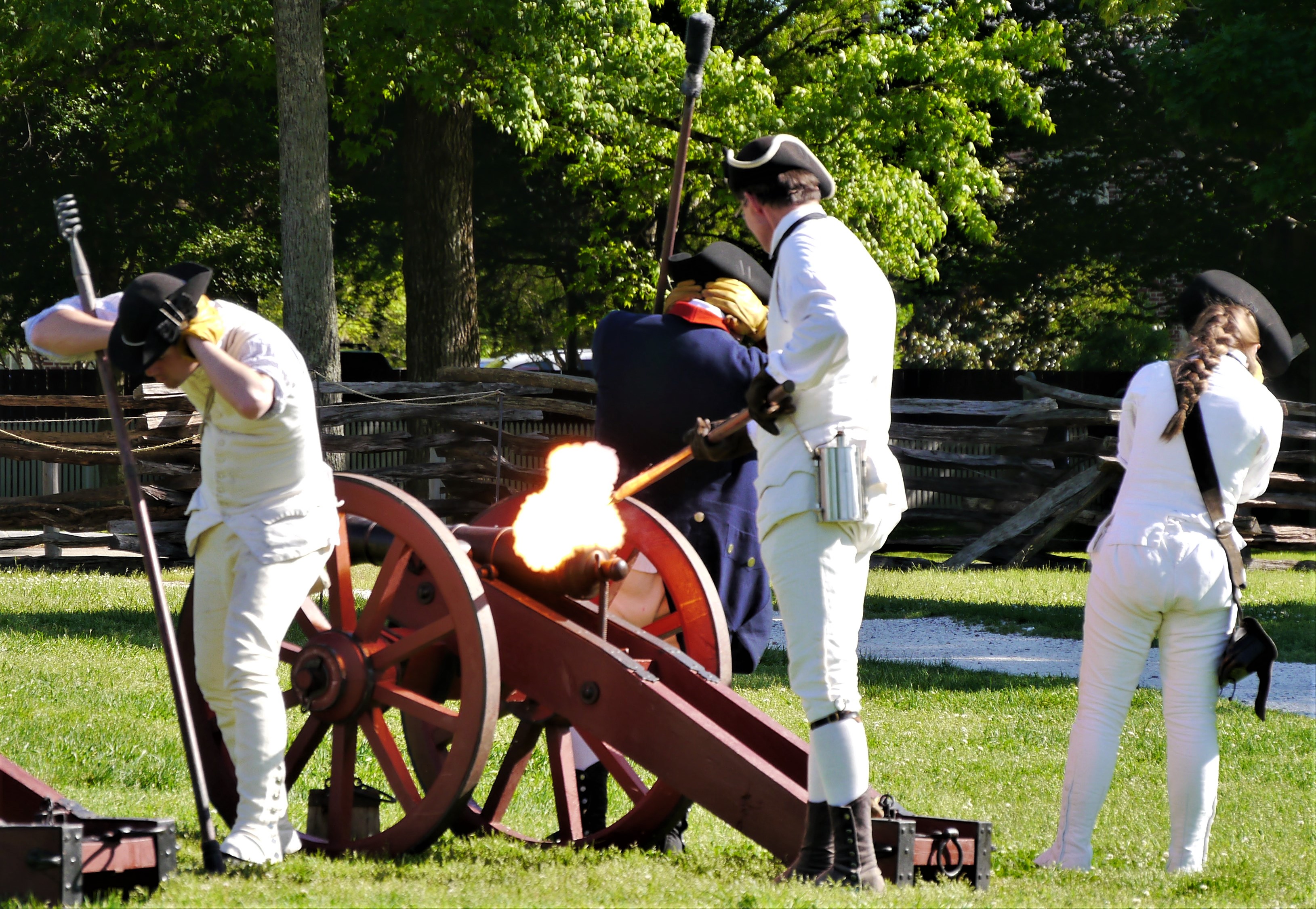
We are currently encamped at Newport News City Campground east of Richmond, Virginia. I am sitting amongst thickly forested evergreens and fully leafed deciduous trees. What makes this place remarkable is that we are a bike ride away from George Washington’s headquarters and very near Yorktown, the scene of the last major battle of the Revolutionary War in which the British army surrendered to American/French armies and navies ending a six year war. Also nearby, is the oldest English settlement in North America, Jamestown, and the restored capital city of Colonial Williamsburg.
Colonial Williamsburg is a remarkable story. Reverend W.A.R. Goodwin became pastor for the Bruton Parish Church turn of the century, 1900s. The church was the original place where George Washington, Thomas Jefferson and others worshipped when they were in the Virginia Burgess (the colonial house of representatives). The good reverend had a vision of not only restoring the vintage church, but the entire area that includes the old capitol building and the governor’s palace. Through tireless petitioning, he interested John D. Rockefeller, who gradually committed to the restoration of the whole township.
Today Colonial Williamsburg, the first settlement of Jamestown, and Yorktown make up the Historic Triangle of Virginia, all connected by the Colonial Parkway following a route through forested trees and is exposed to both the wide James and York rivers. Colonial Williamsburg and Jamestown are both “living museums,” that is you can wander about historic towns and character actors will tell you about the life and times they represent. Our plan has been to be here before school lets out and the weather is mild–as a result there have been far fewer visitors than peak times, and the weather has been perfect, not too warm or humid.
The revolutionary war and the ideals that drove it have always been an interest of mine. There were many factors figuring into the daring stand of the colonists separating from England, who incidentally had the most formidable army and navy in the world (while the colonists started with none). Primarily, it was a desire for personal freedom and the bold vision of the world’s first purely representative elected government. It set forth ideals that were not fully embodied at the time through the exclusion of women, slaves, and native nations from equal rights, however those ideals have stood the test of time, and they continue to be a guiding star for a “more perfect union.”
Speaking with one of the wonderful character actors playing Patrick Henry, I suggested that revolution was such a bold and a very risky proposition–he would have been hanged for treason. He replied, “But God is with us!” And this was very much part of the revolution, that God was with those who asserted that all men were born equal and had certain inalienable rights. The clergy were central to the revolutionary fervor, and it was felt at the time that this was a sacred cause.

It has been an imperfect implementation of these ideals, over sixty years later a most terrible civil war was fought, and at the heart of the issue was slavery; in 1920 women finally gained the equal right to vote. However, the fundamental words of those revolutionary ideals have not changed, only its fuller realization (both Washington and Jefferson were uncomfortable with slavery and both saw its eventual extinction).
The other genius of the time was the check and balance of a limited government. By dividing the executive, legislative and judiciary, the tendency of centralized government to garner more and more power to itself was slowed. Compare that with the disaster of the French revolution that had a single ruling body that eventually collapsed into dictatorship, or in more recent times the costly failure of communism without free elections or an effective bill of rights–it all gains an increased appreciation for the foresight and integrity of the founding generation.
Abraham Lincoln, among others in succeeding generations, saw the creation of the United States as Divinely inspired, and its role in the world crucial to the coming of a new age of government and individual rights. However, with great wisdom he said, “Sir, my concern is not whether God is on our side; my greatest concern is to be on God’s side, for God is always right.” Due to human fallibility there may be those who doubt divine inspiration for this country, but that has always been the case with sacred ideals–as God proposes it is up to human beings to fulfill His high ideals. Imperfect implementation does not mean that it does not come from the most perfect One; only that we need to work harder to be by God’s side.
Like all great principles, they are not the property of any one person, religion, or nation–they are universal and equally true for one and for all. We can draw inspiration from the idealism and courage of those who succeeded against all the odds in bringing forward a nation based on the ideals, “We hold these truths to be self-evident, that all men are created equal by their Creator with certain inalienable Rights, that among these are Life, Liberty and the Pursuit of Happiness. That to secure these rights, Governments are instituted among Men, deriving their just powers from the consent of the governed.”
Picture: Firing of the canon–Colonial Williamsburg
